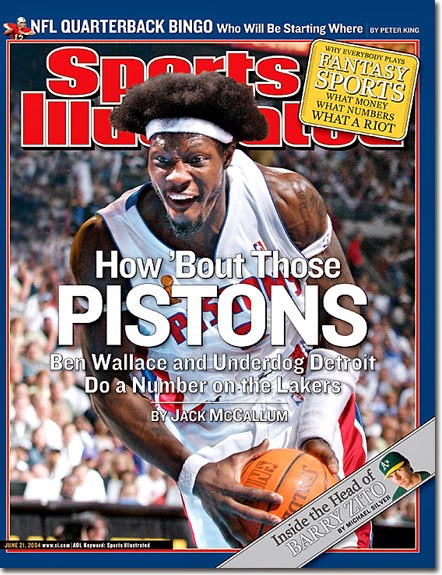He was the ALCS MVP. He won won Games Four and Five with game
winning hits.
In Game 4, after the Red Sox tied the game
in the ninth, he drilled the
game winning HR in the 12th.
In Game
Five Ortiz single in a run and scored in the 1st to give Boston
a 2-0 lead. His 8th in HR cut
the New York lead to 4-3. His 14th inning single won Game 5.
 In Game Seven Big Papi homered and
droved in two as Boston pounded New York 10-3 to advance to to the Series for
the first time since ’86.
In Game Seven Big Papi homered and
droved in two as Boston pounded New York 10-3 to advance to to the Series for
the first time since ’86.
Ortiz in Game One of the World Series drove
in four and homered.
He was .308 in Series with four walks.
Ortiz was an All-Star, Silver Slugger and
was 4th in the AL MVP voting.
He was 2nd in the AL in HR (41), RBi (139) and total bases (351). He led the league with extra base hits (91).
He was fourth in OPS and 2nd
slugging.
In the ALDS Game 3, Papi put Boston the
ALCS with
a series winning HR in the 10th.
Boston
ended it’s 86 year streak by dramatically winning the World Series
in a sweep over St. Louis. They were the first team ever to
comeback from down 3-0 to stun the Yankees.
The Sox finished with 2nd best
record in MLB with 98 wins and led the AL
in average (.282) and runs per game (5.86).
2. Albert Pujols: Led the Cardinals
to the World Series for the first time in 17 years. He was the NLCS MVP.
During
the NLCS he was 14-28 (.500) with 4 HRs 9 RBI and 10 R in St. Louis’ seven
game win over Houston.
The Machine hit a two run shot in Game One
to tie the game at 2 in the 1st. He was 2-3 with 2 BB and 2 Rs.
In
Game Six, Pujols drilled a two run homer in the first to put the Cards on
top. He was 3-5 on the night and scored three runs. In the 12th he
walked and scored on Jim
Edmonds walk off.
The Cardinals would take the dramatic
series in seven.
He put St. Louis in the LCS with a tie
breaking 3R-HR in the 4th and a RBI single in the 7th, as
the Cardinals got past the Dodgers 6-2 in Game Four to take the series 3-1.
He was an All-Star, Silver Slugger and
finished 3rd in the MVP voting.
Pujols hit .331 (5th in NL), 46 HR (2nd), and 123 RBI (3rd).
The
Cardinals first baseman led the NL in runs with 133 and total bases with
389. He was 2nd in slugging % and 3rd in OPS.
The Cardinals won 105 games, the most in
baseball since the 1998 Braves. They led the NL in runs (5.28 per game) and
batting average.
Schill was
second in the AL in ERA (3.26) and WHIP.
He was third in strikeouts with 203 and third in innings
(226.7).
Schilling also led the league for the 4th
straight year in strikeout to walk ratio.
The Red Sox’s ace won Game One of the ALDS over Anaheim with
6 2/3 IP and two earned.
Schilling became
a New England legend after partially tearing ligaments in his ankles in
Game One of the ALCS; a loss to the Yankees.
He came back in Game Six, with the Sox down 3-2 in the series.
He dominated New York for seven innings and giving up just one run.
In the Fall Classic Schilling won Game Two with 6 IP and one
run allowed.
The Red Sox swept the Cardinals for the first World Series
win since 1918.


































